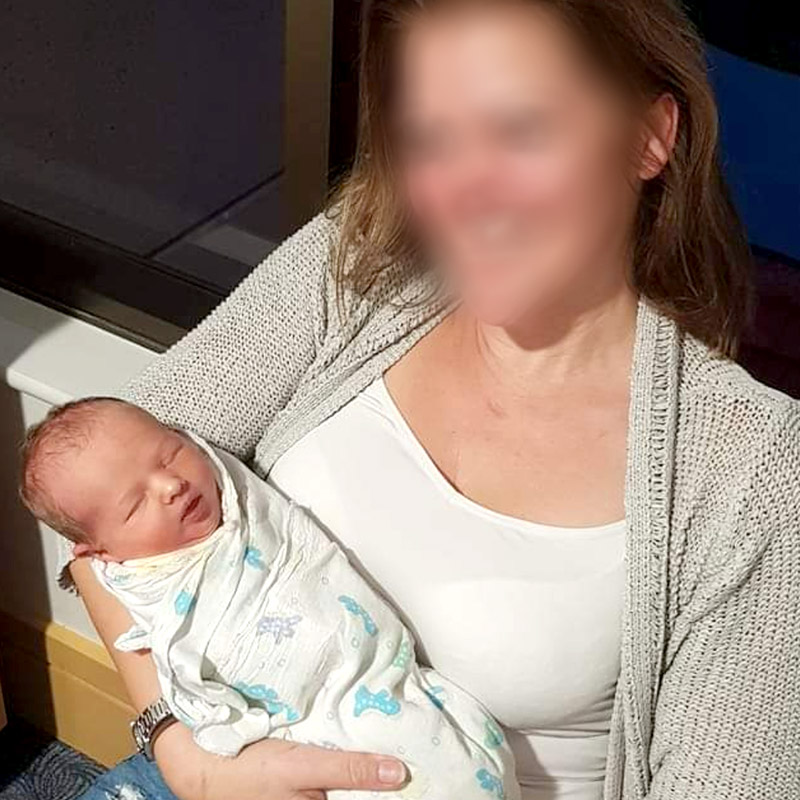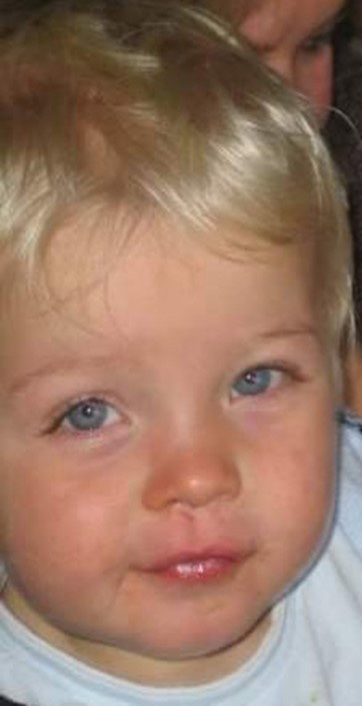Think a little bit of alcohol when pregnant won’t make a difference? Think again.
“I remember I would stand in the kitchen with my husband on a Friday evening and measure out exactly 100ml of wine,” Sophie* tells me.
The year was 2005 and the couple were giddy with joy, having discovered they were pregnant for the first time.
Since they had planned for the pregnancy, Sophie did medical tests and research prior. She knew the type of foods to avoid. She also read the national guidelines on alcohol use at that time: If a pregnant woman chose to drink alcohol, she “should have less than seven standard drinks in any week and no more than two standard drinks on any one day”.
It wasn’t until four years later (and then again in 2020), that the guidelines were updated, stating that women who are pregnant, planning a pregnancy or breastfeeding should not drink alcohol.
For Sophie, it was too late. By the time she discovered she was pregnant, she was already six weeks along and had consumed a few alcoholic drinks prior. She mentioned it to her GP, who following guidelines at the time, reassured her it was nothing to worry about. Looking back, Sophie thinks she was naïve about her alcohol consumption, but it was the general advice at that time.
When her son was born, he was physically perfect and healthy. As a baby, he would “cry a lot and not settle very well” but they were “all things that could be passed as natural development”.

Cheryl’s story
Over in rural Victoria, Cheryl* had a very similar story. She and her husband adopted their son when he was seven-and-a-half weeks old. Cheryl knew her son’s birth mother had drunk alcohol during pregnancy, but the couple were assured that it would not create any problems.
There were some behavioural issues, but similar to Sophie’s experience, they were put down to natural developmental challenges. “But he didn’t grow out of them,” Cheryl says.
When her son was four, he was diagnosed with autism spectrum disorder. However, the psychologist admitted the child also displayed behaviours not consistent with the diagnosis.
“Despite the enormous amount of strategies and therapies we were using, which were based on autism recommendations, our lives were continually spiralling out of control,” Cheryl says.
A few years later, the family started regularly travelling to Sydney to a specialised occupational therapy clinic who would work with the young boy’s sensory issues. The clinic also mentioned he was displaying uncommon behaviours and not responding to the treatment like most others.
Then a chance meeting with a friend started Cheryl researching fetal alcohol spectrum disorder (FASD). After a few misfires, and more research and persistence on Cheryl’s part, her son was diagnosed with FASD at nine years of age.
Fetal alcohol spectrum disorder (FASD)
Professor Elizabeth Elliott is a distinguished professor in paediatrics and child health at the University of Sydney. She has long recommended women who are pregnant or planning for a baby avoid alcohol.
“When a pregnant woman drinks alcohol, it rapidly crosses the placenta and enters the bloodstream of the baby,” Professor Elizabeth explains. “And there, it can damage the developing organs, including the brain.”
In the video below, Professor Elizabeth talks about FASD, its signs and symptoms, and how it is diagnosed.
While there can be physical indicators associated with FASD, such as distinct facial features and a small head circumference, these are not always present. As a majority of FASD symptoms are neurologically related, they aren’t often picked up until a child is of school age.
“FASD affects the ability to think, learn, focus attention, and control behaviour and emotions,” the FAQ page of support and advocacy group, NOFASD Australia, states. “Those affected may also be impulsive and often have low self-esteem and mental health problems. These impairments may also lead to problems at school, socially unacceptable behaviour, alcohol and other drug use, and early interactions with the justice system.”
Living with FASD
In 2018, almost 12 years after Sophie’s son was born, she came across an article talking about FASD. She recognised many of the behavioural symptoms listed and decided to do more research. That was when she discovered FASD can occur so long as the birth mother has consumed alcohol—there was no safe amount.
By this time, Sophie’s son had already gone through several assessments trying to diagnose the reason behind his learning difficulties. While unsuccessful, the assessments did reveal he had “severe impairments and struggles in . . . his brain domain, which cross-referenced to FASD”.
There were also behavioural problems which Sophie says mostly only occurred at home but not at school. This meant there weren’t any major red flags to suggest there was anything serious.
“There were learning difficulties, cognitive processing deficit—only picking up certain pieces of information in an instruction, impulsiveness was absolutely huge—acting without thinking and often dangerously, easily distracted, attention hyperactivity, memory problems, he would get stuck on thought patterns and can’t move on . . . ,” Cheryl lists some of the FASD symptoms present in her son.
Sophie believes what helped in their case was that they were already unknowingly doing the right thing when raising a child with FASD by providing structure, routine and consistency. “We had a very structured life. We always believed raising children was something you do with love and care, but also with boundaries and routines,” she says.
Sophie’s son was officially diagnosed with FASD in 2020.
How FASD is diagnosed
“FASD is so complex and so different for every individual, which is why it’s underdiagnosed or often misdiagnosed,” says Sophie.
Professor Elizabeth helped develop Australia’s first tool to diagnose FASD in 2016. She recognises the difficulty of diagnosing FASD because “there is no diagnostic test. You can’t just do a blood test.”
At the same time, many FASD symptoms are very similar to other neurological disorders. “The bottom line is, this is an injury caused by alcohol, so it can cause all of the other problems,” explains Professor Elizabeth.
Many of the children Professor Elizabeth sees at the Westmead Children’s Hospital clinic are aged between seven and nine. This is because many FASD symptoms won’t become obvious until a child starts school. It’s when “they’re starting to fall behind at school or have severe behavioural problems”.
To help doctors diagnose FASD, Professor Elizabeth’s guidelines include:
- Exposure to alcohol during pregnancy
- Abnormal facial features and birth defects
- Neurological development problems
- Social skills and self-care capabilities
For any parents wondering if their child may have FASD, the first port of call would be a GP. There may then be referrals to physiotherapists, occupational therapists or speech therapists.
“It’s important that this is done early, even if a diagnosis of FASD can’t be made at that time,” Professor Elizabeth points out.
“It’s not that he won’t, it’s that he can’t.”

When a diagnosis is made, therapy for FASD will focus on the child’s unique strengths and needs. “The young child’s brain is very adaptable. It can be trained and retrained, so the earlier we can identify developmental and learning problems, the earlier we can put in place effective treatment, then the better the outcomes will be for that child,” Professor Elizabeth says.
Cheryl’s son’s FASD diagnosis turned her life around regarding “strategies, therapies and also our entire thought processes regarding our son’s behaviours”.
A common phrase in the FASD support community is “It’s not that he won’t, it’s that he can’t”. Sophie mentioned it in relation to managing her son’s behaviour, and it’s also something Cheryl lives by to better understand her son. “For example, there might be some things he can’t do because of his sensory defence, so what can I get him to do that is easier for him to manage?” Cheryl says.
As Cheryl points out, there is no cure for FASD and any actions taken are to manage the behaviour. The results aren’t often immediate either. “It’s taken years and even now, there are new things that keep coming up,” says Cheryl. For Cheryl, it’s about having “a whole toolbox of strategies as what works one day may not work the next”.
While Sophie’s son was able to continue at school, Cheryl decided to homeschool her son which she believed helped him flourish. Both Sophie and Cheryl agree the main thing when it came to helping their sons lay in focusing on their strengths and encouraging these.
“If I could turn back the clock, of course I would never have wanted our son to have FASD, but it happened,” Sophie says. “I couldn’t have done anything differently because I didn’t know to do differently. Yes, I feel guilt, but I can’t change it. Having the diagnosis, while confronting, meant we have a lot more understanding and can advocate for him a lot more strongly for the support he needs.”
Editor’s note: If you are currently pregnant and have consumed alcohol, or currently have an alcohol dependency, it is important to speak with a medical practitioner about your situation.
* Last name withheld for privacy.
How helpful was this article?
Click on a star to rate it!
5 / 5. 3
Be the first to rate this post!
Melody Tan
Related posts
Subscribe
Receive personalised articles from experts and wellness inspiration weekly!


